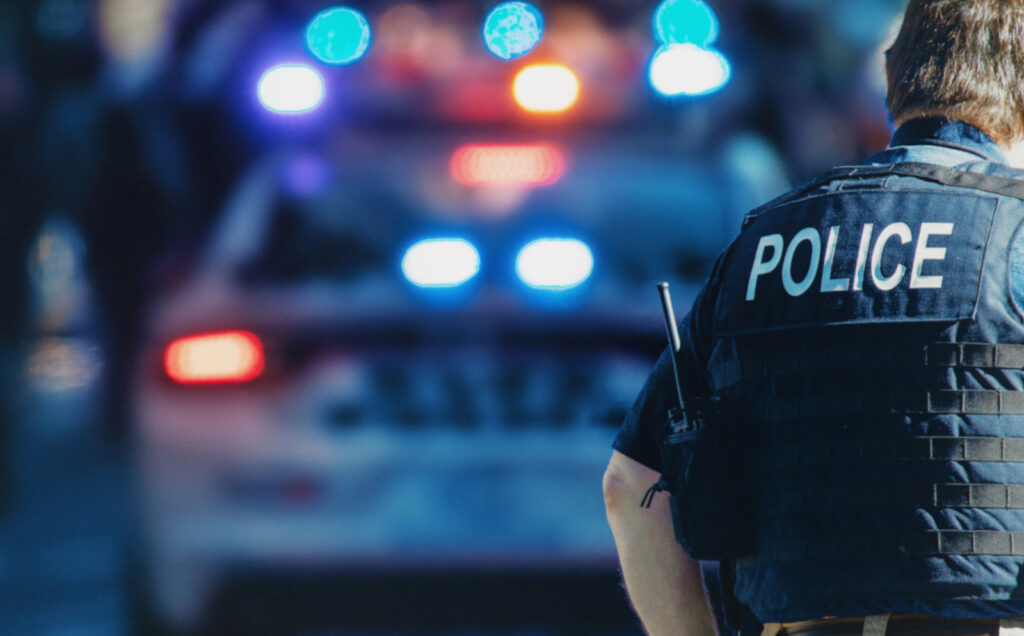By Jeffrey A. Roberts
CFOIC Executive Director
Are Colorado law enforcement agencies allowed to charge the public thousands of dollars for body-worn camera footage of incidents of alleged officer misconduct?
Court briefs recently submitted in a Boulder County District Court case lay out arguments on both sides of this legal question for a judge to consider at a hearing in July.
In April, Yellow Scene Magazine sued the Boulder Police Department over its insistence that the news organization pay the city $2,857.50 to obtain video of the 2023 fatal shooting of 51-year-old Jeanette Alatorre by officers near the North Boulder Recreation Center. Alatorre’s daughter, Jeannette Orozco, joined the lawsuit after she too requested the recordings.

The plaintiffs point out that Colorado’s Law Enforcement Integrity Act, enacted in 2020 following the killing of George Floyd in Minneapolis, contains no language authorizing Boulder to charge fees for unedited body-cam footage of incidents “in which there is a complaint of peace officer misconduct.” But Boulder argues that the requested video is “indisputably” a criminal justice record under the Colorado Criminal Justice Records Act, which permits the assessment of “reasonable fees, not to exceed actual costs” for the search, retrieval and redaction of records.
CCJRA and the Law Enforcement Integrity Act “must be read in harmony,” wrote Luis Toro, senior counsel in the city attorney’s office, in a brief filed last week. “There is no conflict between the two statutes for the Court to resolve. Both apply, and therefore, the City may charge for the time spent performing the video blurring mandated by C.R.S. § 24-31-902(b)(II)(A),” he added.
Toro’s brief also argues that Yellow Scene’s position would have the Law Enforcement Integrity Act “imposing an unfunded mandate on local governments.” He cited C.R.S. § 29-1-304.5(1), which makes state mandates optional unless the state reimburses local governments for their costs.
If the court agrees with Yellow Scene that the city is not allowed to charge fees for body-cam footage, the Law Enforcement Integrity Act “must be interpreted as making delivery of police video optional on the part of local government,” Toro contended.
The brief filed by Matthew Simonsen, attorney for Yellow Scene and Orozco, notes that CCJRA allows a law enforcement agency to charge fees for the search, retrieval and redaction of criminal justice records “pursuant to this part 3” of the statute, making it “inapplicable” to the mandatory footage-release provisions in the Law Enforcement Integrity Act — a separate part of Title 24.
Under the 2020 law, all unedited video and audio recordings of incidents “in which there is a complaint of peace officer misconduct … through notice to the law enforcement agency involved in the alleged misconduct” must be released to the public no later than 21 days after a request is made. Redactions are allowed if a video “raises substantial privacy concerns” for criminal defendants, victims, witnesses, juveniles or informants. This could include video depicting nudity, a sexual assault, a mental health crisis, a medical emergency or a “significantly explicit and gruesome bodily injury, unless the injury was caused by a peace officer.”
“Notably absent” from the Law Enforcement Integrity Act “is any language even suggesting that payment of fees is a prerequisite to releasing BWC footage,” Simonsen wrote. Boulder’s interpretation, he added, “would nullify the transparency and accountability objectives that the Integrity Act’s public-release requirement sought to accomplish. Yellow Scene cannot afford to shell out thousands of dollars every time there is complaint of police misconduct; likewise, Ms. Orozco cannot pay exorbitant amounts for videos that may or may not bring her closure about her mother’s death.”
Briefs from both sides mention a recent legislative attempt by state Rep. Leslie Herod to explicitly ban the charging of fees for unedited footage under Law Enforcement Integrity Act, which the Denver Democrat co-authored four years ago. The proposal was part of House Bill 24-1460, a police officer whistleblower bill that died in the last days of the 2024 session.
Simonsen noted Herod’s explanation to other lawmakers that the charging of fees for body-camera footage was based on a “misunderstanding” of the 2020 law. “Although the bill ultimately failed for unrelated reasons, Representative Herod’s statements about this particular ‘clean-up language’ …. lend further support to the conclusion that the legislature never intended the Integrity Act’s public-release requirement to be conditioned on any payment of fees by the public,” he added.
Toro’s brief, however, contends that the failure of HB 24-1460 “is powerful evidence that the General Assembly does not intend for municipalities to provide video free of charge when there has been an allegation of police misconduct.”
A hearing in the lawsuit is scheduled for July 11.
Follow the Colorado Freedom of Information Coalition on X (formerly Twitter) @CoFOIC. Like CFOIC’s Facebook page. Do you appreciate the information and resources provided by CFOIC? Please consider making a tax-deductible donation.




